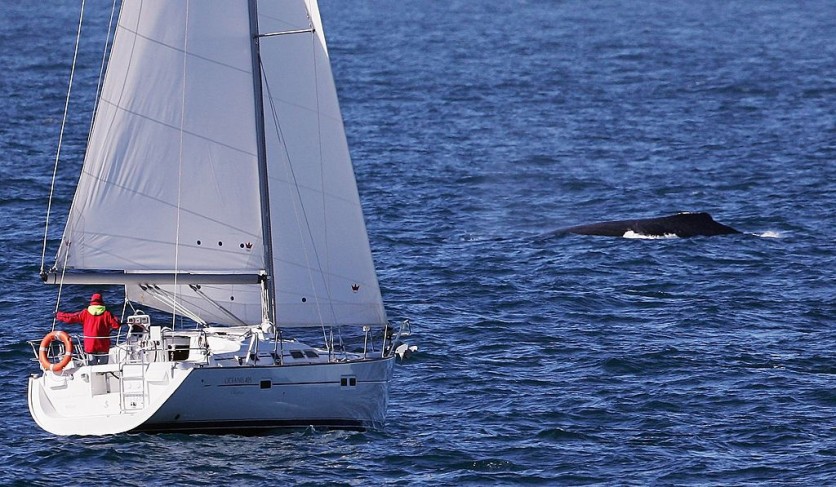In a promising development for the maritime industry's sustainability efforts, researchers at Cranfield University have unveiled a groundbreaking concept known as Wave Devouring Propulsion (WDP).
This concept, aiming to harness the power of waves for ship propulsion while reducing greenhouse gas emissions, draws inspiration from the structure and movement of the whale's tail fins.

Inspired by Whale's Tail Fins
The research team delved into the intricate structure and motion of a whale's tail fin to unravel the secrets of its effective use of wave energy for propulsion.
Through a combination of simulations and experiments, they successfully integrated a simplified version of the whale's tail fins' action into a ship's power system, paving the way for a novel approach to marine propulsion.
Dr. Liang Yang, the lead researcher and lecturer in marine renewable energy systems at Cranfield University, expressed optimism about the transformative potential of WDP in advancing maritime sustainability.
"Wave Devouring Propulsion (WDP) could act as a transformative force in maritime sustainability. Our research pioneers a novel approach to propel ships using the boundless energy of waves," Yang said in a statement.
"We're not just reducing emissions; we're navigating towards a future where carbon reduction targets are met, and the shipping industry aligns with sustainable development goals," he added.
According to the research team, WDP technology boasts a range of advantages, positioning it as a compelling solution for the marine industry's quest for greener alternatives.
Beyond the apparent reduction in fuel costs, WDP may significantly enhance marine craft propulsion. This environmentally friendly technology is touted as versatile, finding applications in various vessels, including small, unmanned crafts.
Moreover, it could seamlessly integrate into hybrid propulsion systems powered by electricity, hydrogen, or fossil fuels. By contributing to carbon reduction targets, WDP aligns with the shipping industry's broader sustainable development goals.
Read Also : 'Wave Energy Generator': CalWave's Clean Power Tech Finishes A Successful 10-Month Open Ocean Test
Sustainable Ship Propulsion Systems
The academic study, led by Yang, provides a comprehensive review of flapping foils for Wave Devouring Propulsion, detailing the technology's theoretical, experimental, and numerical aspects.
These studies showcase the efficiency and low resistance achieved by marine equipment equipped with a flapping foil system, emphasizing the potential for self-driven, pollution-free propulsion of marine devices. The research not only introduces the initial concept models but also highlights the promising direction for future studies in this domain.
As the maritime industry continues to grapple with the imperative of reducing its environmental impact, the introduction of Wave Devouring Propulsion aims to take a pioneering step toward a more sustainable and eco-friendly future for ship propulsion systems.
The research team's findings were published in the journal Renewable and Sustainable Energy Reviews.
Related Article : Oneka Technologies Unveils Wave-Powered Desalination Machine: A Solution to Increasing Global Water Scarcity?

![Apple Watch Series 10 [GPS 42mm]](https://d.techtimes.com/en/full/453899/apple-watch-series-10-gps-42mm.jpg?w=184&h=103&f=9fb3c2ea2db928c663d1d2eadbcb3e52)



